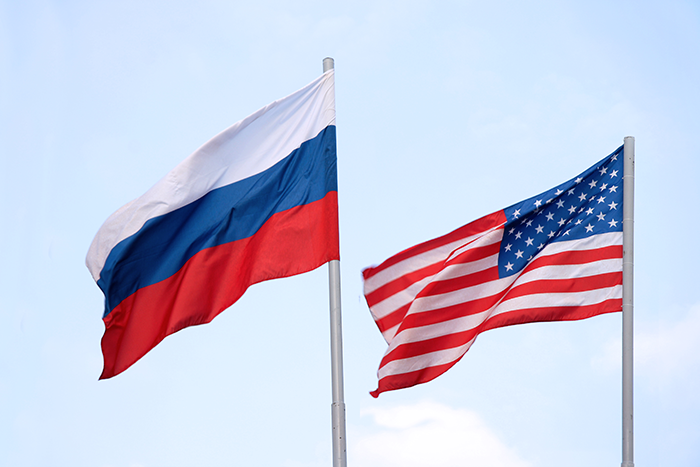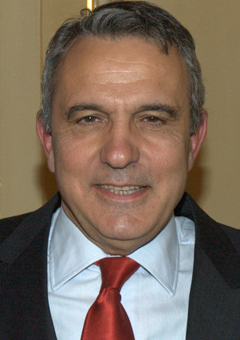Analyses / Europe, European Union, NATO
17 February 2025
Yalta or Entente cordiale ?

As soon as Presidents Donald Trump and Vladimir Putin hung up their phones, commentators began invoking the spectre of Yalta—a conference often seen as a division of the world into two blocs and the beginning of the Cold War between two irreconcilable spheres. Let us recall that the agreements signed at Yalta included the United Nations Conference, which led to the establishment of the United Nations (UN) in April–June 1945, with China and France among the invited participants; the redrawing of certain European borders, particularly those of Poland and Germany; and assistance to countries liberated from German occupation in establishing democratic governments. The third objective was ultimately not achieved, as the USSR imposed an “iron curtain over Europe”[1] and established communist rule over the territories it occupied.
At present, it is only by examining the agreements to be signed between these two presidents that a meaningful comparison can be drawn. However, it is already clear that Ukraine, European countries, and the European Union are not currently expected to play a key role in resolving this conflict—whereas, at Yalta, even though China and France were absent, they still featured in the negotiators’ discussions on global governance.
This absence—hopefully temporary—remains entirely consistent with the fundamental causes of this war, as clearly stated by the Russian president in his speech at the 2007 Munich Security Conference and reiterated in the two documents sent to the United States and NATO on 17 December 2021[2]. This war is fundamentally a Russo-American conflict, in which Ukraine finds itself embroiled due to its geopolitical position. The rhetoric surrounding Russian identity and the condemnation of Nazism primarily serve as instruments of indoctrination to secure public support for Russia’s core objectives: keeping NATO away from its borders (i.e., preventing Ukraine’s membership), limiting U.S. influence (halting the deployment of ABM systems), and securing Russia’s place in a multipolar global governance system.
Many commentators have also referenced the “Spirit of Munich” in discussing the war in Ukraine, alluding to the 1938 Munich Agreement. Yet, a reference to the 2007 Munich Security Conference might have been more insightful, encouraging a reassessment of President Putin’s speech to better understand his strategy and avoid the surprise of February 2022.
Thus, the link between Yalta and the current situation in this Russo-American power struggle remains tenuous. The only significant parallel is the question of global governance—addressed at Yalta with the establishment of the UN but soon evolving into a bipolar Cold War system, and later into what some observers describe as unipolar U.S. dominance:
“The system of a single state’s law—above all, of course, the United States—has extended beyond its national borders in every domain […] and is imposed on other states. Who could possibly find this acceptable?”
If we are to seek a historical analogy, the Entente Cordiale between France and Britain in 1904 appears more pertinent.
Setting aside the historical coincidence that Franco-British rapprochement began in 1854 during the Crimean War against the Russian Empire, the Entente Cordiale primarily aimed to end centuries of warfare between the two empires and regulate their international policies. It was also, implicitly, a means of containing the rising German Empire, which sought global hegemony. This explains why Germany attempted, in vain, to break the alliance through diplomatic manoeuvres from 1904 to 1914. Once solidified, the Franco-British alliance enabled a joint resistance against German aggression in 1914 and, later, in 1940.
At its core, the Entente Cordiale was an alliance of two empires against a third empire in the midst of asserting its hegemony—an analogy that aligns with the emerging Russo-American rapprochement.
U.S. support for Ukraine has not fully achieved its goal of weakening Russia. As U.S. Defence Secretary Lloyd Austin stated, “We want to see Russia weakened to the point where it can’t do things like invade Ukraine“, but the results have been mixed. While NATO has gained two new members, Russia—with its vast resources in mining, energy, and nuclear technology—has strengthened its “limitless friendship” with China, a rising hegemonic power eager to exploit these resources to solidify its own dominance.
The recent U.S.-Russia contacts do not signify a new Yalta, as Donald Trump has clearly identified China as his primary rival. The central challenge for the U.S. is to maintain global supremacy. This emerging alignment is not about dividing the world but rather regulating it for the coming century—or centuries. Two competitors are poised for dominance: the United States and China. And both need Russia to achieve their objectives.
So, will the new Entente Cordiale be Sino-Russian or Russo-American? The first option has gained significant ground, but Trump and his team are known for their ambition in overcoming challenges. To “Make America Great Again,” a reset in U.S. policy toward Russia seems essential.
China’s reaction will be crucial: will it respond immediately or adopt a wait-and-see approach? Will it further tighten its grip on Russia, integrating it deeper into an economic, financial, and security framework? Or will it feign indifference, recognising that a four-year U.S. presidential term is fleeting in the eyes of an empire with millennia of history and a communist state approaching its centennial?
And what about Europe? Let’s indulge in a historical analogy for rhetorical effect. There are two possible models: Europe can either be cornered within its Eurasian peninsula by a new Mongol Empire and its successors or assert its strategic sovereignty, as in the era of the “unequal treaties” imposed on China by Kublai Khan’s successors. Put more diplomatically: Will Europe accept subjugation, or will it dare to pursue strategic autonomy?
The road to European strategic sovereignty is long and fraught with obstacles. But the first step is to understand why a strategic dialogue is emerging between Russia and the U.S. and where it is leading—because only then can Europe define its own position and objectives.
[1] Winston Churchill, Speech at Fulton University (United States), 5 March 1946..

